How to Donate to the Sixth Region Diaspora Caucus
SRDC is a non-profit non-governmental Pan-African organization. We receive no grants or loans from government entities and we have no financial connections to corporations to keep us going. We subsist on the resources and unpaid work of our members, and the contributions of supporters. If you would like to support the work of the Sixth Region Diaspora Caucus (SRDC), you can do so through our PayPal link:
For those who are unclear about exactly what your support of SRDC means, below we briefly explain some of our primary projects and goals, all of which spring from our founding goal of connecting the Diaspora with the Mother Continent to raise our voice on the World Stage and to assist in the uplift of African People everywhere.
SRDC’s work with Sehwah-Liberia
The partnership between SRDC and the Liberian civil society organization Sehwah-Liberia began in 2015 with the  launching of the Library Project Initiative (for more detail see below; also visit our blog post and dedicated Library Project Page). Baba Kumasi Palmer, SRDC-South Carolina Facilitator, and Madam Louise Siaway, Sehwah-Liberia’s Founder and Director, began to promote the idea of establishing the first-ever public library to serve the West African nations of Liberia, Cote D’Ivoire, Sierra Leone and Guinea-Conakry, to be based in Monrovia, Liberia. This project also represents an historic opportunity for African Descendants in the Diaspora, particularly the United States, to re-
launching of the Library Project Initiative (for more detail see below; also visit our blog post and dedicated Library Project Page). Baba Kumasi Palmer, SRDC-South Carolina Facilitator, and Madam Louise Siaway, Sehwah-Liberia’s Founder and Director, began to promote the idea of establishing the first-ever public library to serve the West African nations of Liberia, Cote D’Ivoire, Sierra Leone and Guinea-Conakry, to be based in Monrovia, Liberia. This project also represents an historic opportunity for African Descendants in the Diaspora, particularly the United States, to re-

Madam Louise Siaway
establish and strengthen ties to the Mother Continent through the nation that was established as a destination point for African People who had been freed from the bonds of slavery in the United States. This project has grown into an opportunity to establish real, on-the-ground connections between the Mother Continent and the Diaspora and to advance SRDC’s primary goal of bringing the resources, expertise and voice of the Diaspora to the World Stage for the advancement of Africa and her Scattered Black Children around the world. SRDC’s first official office on the African Continent is in Monrovia. Liberia.
The Library Project is not the only initiative being pursued by SRDC and Sehwah. During the Summer of 2019, the organizations worked together on two important projects in Liberia:
- Pan African Virtual Summer Camp and Cultural Exchange: The Virtual Summer Camp was held during the months of July and August of 2020. About a dozen high school students in the United States (Maryland) participated, along with over 40 Liberian students, in an online summer education program, led by Madam
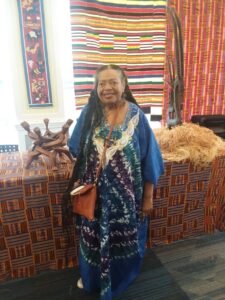
Mama Maisha Washington
Louise Siaway in Liberia and Mama Maisha Washington, a veteran educator and member of the Maryland Council of Elders and SRDC Maryland Organizing Committee, in the United States. Instructors from both countries led virtual classes on environmental science, project management, linguistics, information technology, yoga, African dance, coding, Swahili, cooking, oral history, African geography, culture and astronomy. The resulting cultural interaction between students and instructors from Liberia and the United States was designed to help broaden the students’ view and vision of Africa, leading to more effective communication, along with developing skills in project management,
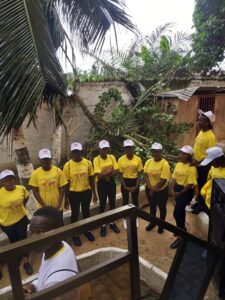
Several of the Summer Camp students in Liberia.
compromise/consensus, negotiation, decision making and problem solving. The students who completed this summer program successfully would then become a part of the first phase of building the Library in Monrovia, Liberia. All students who participated received a Summer Camp T-Shirt, a Summer Camp Cap and a Summer Camp Duffel Bag in addition to the instruction they received and the memories of an enjoyable summer program. Sadly, Mama Maisha passed on to the Honored Ancestors suddenly in October 2020. We hope to be able to duplicate the effort in following summers to properly honor Mama Maisha and her great work as an educator of African children on both sides of the Atlantic. More information on the Virtual Summer Camp can be found here.
- COVID-19 Food Distribution Drive: As a result of the COVID-19 pandemic, on the 10th of April 2020, the Government of Liberia declared a State of Emergency, coupled with a Nationwide Lockdown. In the wake of this State of Emergency, SEHWAH and its collaborating US based partner organization SRDC (Sixth Region Diaspora Caucus) launched a food distribution drive to supplement the government’s efforts in providing food assistance to the needy people. This was necessary in order to alleviate the hardship and suffering which came as the result of the government’s stay at home order.
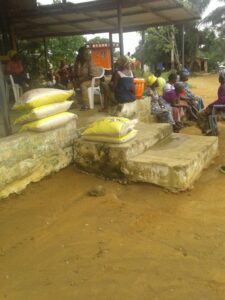 While the government’s stay at home order is necessary to prevent the spread of the deadly pandemic, enforcing it was very problematic because the common complaint of many people was, “how can we survive if we cannot go out to look for our daily bread?” In wealthy nations, governments provide stimulus relief packages to their citizens while they are told to stay home and practice social distancing. In Liberia, such a gesture from the government was not put in place and the economic hardship was creating problems among the citizens. As such, SEHWAH Liberia Inc. and its collaborating partner, SRDC joined together to launch the fund raising campaign in support of their food donation campaign. This campaign consisted of food and material distributions in various communities in Monrovia. This campaign mainly targeted the most vulnerable such as children, elderly men and women as well as the people living with disabilities. According to Madam Louise Siaway, former Assistant Minister for Cultural Affairs at the Ministry of Information in Liberia and founder of SEHWAH, who personally led this effort, the recipients of the food donation have been very grateful and thankful to the SEHWAH-SRDC partnership for thinking about them in this time of serious health crisis and its adverse consequences. Along with the food, we also donated face masks as well as bottles of hand sanitizer. For more information, including the full report on the food distribution effort, click here.
While the government’s stay at home order is necessary to prevent the spread of the deadly pandemic, enforcing it was very problematic because the common complaint of many people was, “how can we survive if we cannot go out to look for our daily bread?” In wealthy nations, governments provide stimulus relief packages to their citizens while they are told to stay home and practice social distancing. In Liberia, such a gesture from the government was not put in place and the economic hardship was creating problems among the citizens. As such, SEHWAH Liberia Inc. and its collaborating partner, SRDC joined together to launch the fund raising campaign in support of their food donation campaign. This campaign consisted of food and material distributions in various communities in Monrovia. This campaign mainly targeted the most vulnerable such as children, elderly men and women as well as the people living with disabilities. According to Madam Louise Siaway, former Assistant Minister for Cultural Affairs at the Ministry of Information in Liberia and founder of SEHWAH, who personally led this effort, the recipients of the food donation have been very grateful and thankful to the SEHWAH-SRDC partnership for thinking about them in this time of serious health crisis and its adverse consequences. Along with the food, we also donated face masks as well as bottles of hand sanitizer. For more information, including the full report on the food distribution effort, click here.
The Liberia Library Project
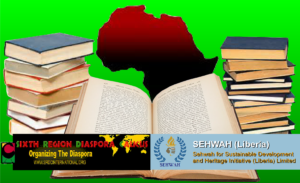 In 2018, a delegation from SRDC. led by SRDC’s International Facilitator Prof. David Horne, traveled to Monrovia, Liberia to meet with local Elders and community leaders and to bring the project to build Liberia’s first public library closer to fruition. As this historic meeting was taking place, Baba Kumasi Palmer was leading an effort to gather donated books from across the United States to help jump-start the establishment of the library. While plans have been discussed and made for obtaining a plot of land for the library and preparing plans for the building, the book-donation drive has continued. See our article on the book donation project, our post on the Liberia Library Project and our Library Project Page for more details.
In 2018, a delegation from SRDC. led by SRDC’s International Facilitator Prof. David Horne, traveled to Monrovia, Liberia to meet with local Elders and community leaders and to bring the project to build Liberia’s first public library closer to fruition. As this historic meeting was taking place, Baba Kumasi Palmer was leading an effort to gather donated books from across the United States to help jump-start the establishment of the library. While plans have been discussed and made for obtaining a plot of land for the library and preparing plans for the building, the book-donation drive has continued. See our article on the book donation project, our post on the Liberia Library Project and our Library Project Page for more details.
Dual Citizenship
This has been an important topic in all of SRDC’s Summits. As we work to establish and strengthen our connection to our ancestral home, the option of repatriation to Africa has become more attractive to African Descendants 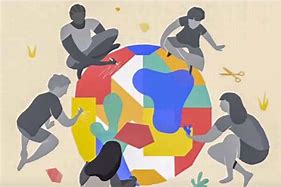 around the world, especially in the United States, where the recurring insults to our quest for equality (voter suppression measures, police killings of African Descendant citizens, acts of racial terrorism, economic exploitation and other legal and civil acts of aggression) have convinced a growing number of us that we will never be fully welcome in the United States and other countries where we are relegated to “minority” status. Even those of us who feel fully accepted in the West have often felt the strong desire to re-connect with our ancestral home, and have thus chosen to repatriate to African nations from Ghana to Tanzania to Kenya, in particular. The establishment of Dual Citizenship rights in African countries would facilitate our increased ability to contribute materially to the welfare of our Sisters and Brothers in Africa.
around the world, especially in the United States, where the recurring insults to our quest for equality (voter suppression measures, police killings of African Descendant citizens, acts of racial terrorism, economic exploitation and other legal and civil acts of aggression) have convinced a growing number of us that we will never be fully welcome in the United States and other countries where we are relegated to “minority” status. Even those of us who feel fully accepted in the West have often felt the strong desire to re-connect with our ancestral home, and have thus chosen to repatriate to African nations from Ghana to Tanzania to Kenya, in particular. The establishment of Dual Citizenship rights in African countries would facilitate our increased ability to contribute materially to the welfare of our Sisters and Brothers in Africa.
Land Ownership
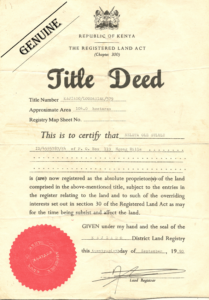 There has been some confusion about the difference between “land ownership”, “land leasing” and “right to abode” among African-American expatriates. Several thousand African-Americans emigrated to Ghana over the last several decades, seeking to establish dual citizenship, voting rights and land ownership in their new home. For years, many of them waited, with some degree of frustration, as their bid to establish citizenship, and the rights associated with it, in Ghana were frustrated by what they saw as bureaucracy influenced by a degree of nationalist bias. Many of them lived in Ghana under a “right to abode” concept, which granted them the right to live in the country but denied them the right to actually purchase and own land, which is considered central to the establishment of true citizenship, personal security and the prospect of building a business. We hope to discuss the issues surrounding land ownership and its impact on other aspects of the enjoyment of full citizenship in our ancestral home.
There has been some confusion about the difference between “land ownership”, “land leasing” and “right to abode” among African-American expatriates. Several thousand African-Americans emigrated to Ghana over the last several decades, seeking to establish dual citizenship, voting rights and land ownership in their new home. For years, many of them waited, with some degree of frustration, as their bid to establish citizenship, and the rights associated with it, in Ghana were frustrated by what they saw as bureaucracy influenced by a degree of nationalist bias. Many of them lived in Ghana under a “right to abode” concept, which granted them the right to live in the country but denied them the right to actually purchase and own land, which is considered central to the establishment of true citizenship, personal security and the prospect of building a business. We hope to discuss the issues surrounding land ownership and its impact on other aspects of the enjoyment of full citizenship in our ancestral home.
Business Development
 A connection between African and African-Descendant businesses is an important component of the advancement of the people. African artisans, artists, farmers and other businesses are often isolated from the global marketplace, except in cases where there is a natural resource (coltan, oil, mining) that can be exploited by both the East and the West. Building connections between African and African-Descendant business interests, based on African cultural principles, can provide important leverage on the World Stage for our common needs and priorities.
A connection between African and African-Descendant businesses is an important component of the advancement of the people. African artisans, artists, farmers and other businesses are often isolated from the global marketplace, except in cases where there is a natural resource (coltan, oil, mining) that can be exploited by both the East and the West. Building connections between African and African-Descendant business interests, based on African cultural principles, can provide important leverage on the World Stage for our common needs and priorities.
Agricultural Projects
African farmers are increasingly endangered by global interests from the United States and China who are continuing to buy up and appropriate lands for their own agricultural projects, often involving the production of genetically-modified (GM) foods. Traditional farming methods are increasingly being replaced by industrial-farming methods that have stripped the soil and polluted the environment in the United States and Chine in particular, and thus these  nations as well as others are looking to Africa to help them grow food for their populations and not for the people of Africa. Some self-styled philanthropic efforts, such as Water Efficient Maize for Africa (WEMA) and other projects of the Gates Foundation and the United States Agency for International Development (USAID) have depended excessively on GM and industrial-farming technology at the expense of traditional, organic and natural farming methods that have been successfully applied by smallholder farmers for millennia. Meanwhile, Black farmers in the United States continue to be marginalized, their lands being steadily taken from them through legal maneuvering by mendacious lawyers as well as the United States Department of Agriculture (USDA). The Pigford lawsuits have crystallized the abuse Black farmers have endured in the United States, even as new legal and legislative efforts have been launched on behalf of White farmers to prevent Black farmers from winning the redress to which they are entitled. This has created a natural alliance between African farmers and their African-American Sisters and Brothers that must be established and strengthened, for the sake of Black farmers everywhere, for African People in general and for the people of the world who will ultimately depend on food from Africa to help combat world hunger. We will discuss how to develop farmland in Liberia in particular to help lift up the Liberian people and create opportunities for partnerships between Africa’s farmers and Black farmers in the United States.
nations as well as others are looking to Africa to help them grow food for their populations and not for the people of Africa. Some self-styled philanthropic efforts, such as Water Efficient Maize for Africa (WEMA) and other projects of the Gates Foundation and the United States Agency for International Development (USAID) have depended excessively on GM and industrial-farming technology at the expense of traditional, organic and natural farming methods that have been successfully applied by smallholder farmers for millennia. Meanwhile, Black farmers in the United States continue to be marginalized, their lands being steadily taken from them through legal maneuvering by mendacious lawyers as well as the United States Department of Agriculture (USDA). The Pigford lawsuits have crystallized the abuse Black farmers have endured in the United States, even as new legal and legislative efforts have been launched on behalf of White farmers to prevent Black farmers from winning the redress to which they are entitled. This has created a natural alliance between African farmers and their African-American Sisters and Brothers that must be established and strengthened, for the sake of Black farmers everywhere, for African People in general and for the people of the world who will ultimately depend on food from Africa to help combat world hunger. We will discuss how to develop farmland in Liberia in particular to help lift up the Liberian people and create opportunities for partnerships between Africa’s farmers and Black farmers in the United States.
SRDC’s Core Mission and Plan
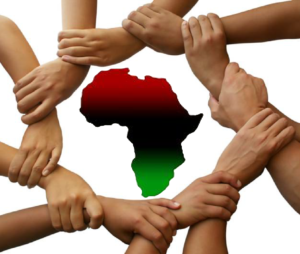 All of the projects above grew out of SRDC’s commitment to make real our mission to connect the Diaspora to the Mother Continent in a areal and practical way. That connection will be necessary to truly accomplish our Core Mission, which is explained more fully below.
All of the projects above grew out of SRDC’s commitment to make real our mission to connect the Diaspora to the Mother Continent in a areal and practical way. That connection will be necessary to truly accomplish our Core Mission, which is explained more fully below.
SRDC was established in 2006 to seek to establish the voice of the Diaspora in the African Union, inspired by the AU’s 2003 Constitutive Act which encouraged the inclusion of the Diaspora in “the development of the African Continent and the building of the African Union”:
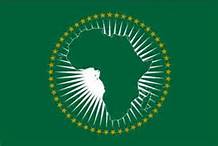 “The prime directive of the Sixth Region Diaspora Caucus is to provide a coherent organizational voice for Diasporan participation in the African Union; to establish and maintain that participation at a high quality, well-informed, diplomatic and strategic level; to provide a tangible vehicle for focusing the resourcefulness, expertise and experience of Diasporans on defining a stronger, more positive African future; and to be a consistent, reliable reference point for AU-Diasporan networking, partnership and collaboration.” (2013 SRDC Mission Statement)
“The prime directive of the Sixth Region Diaspora Caucus is to provide a coherent organizational voice for Diasporan participation in the African Union; to establish and maintain that participation at a high quality, well-informed, diplomatic and strategic level; to provide a tangible vehicle for focusing the resourcefulness, expertise and experience of Diasporans on defining a stronger, more positive African future; and to be a consistent, reliable reference point for AU-Diasporan networking, partnership and collaboration.” (2013 SRDC Mission Statement)
The difficulties that have come from the often-bureaucratic nature of international politics have led to often-maddening delays in the realization of that mission. The US-backed war against Libya in 2011 eliminated a major financial support for the AU and its initiatives, and thus the effort to bring the Diaspora into the AU as voting members of its civil-society organ, the Economic, Social and Cultural Council (ECOSOCC) took a back seat. As a result, at the 2013 SRDC International Summit in Los Angeles, California, the Mission Statement was slightly amended.
“The prime directive of the Sixth Region Diaspora Caucus is to provide a coherent organizational voice for Diasporan participation in the international arena; to establish and maintain that participation at a high quality, well-informed, diplomatic and strategic level; to provide a tangible vehicle for focusing the resourcefulness, expertise and experience of Diasporans on defining a stronger, more positive African future; and to be a consistent, reliable reference point for African-Diasporan networking, partnership and collaboration.”
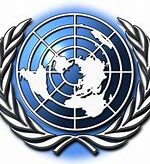 This minor change has allowed SRDC to continue its advocacy for Diasporan representation in the African Union, as well as to push for similar initiatives in the United Nations (most likely though the UN’s Working Group of Experts on People of African Descent or the Permanent Forum on People of African Descent) and independent Pan-African civil-society organizing, such as the newly-formed Pan African Federalist Movement (PAFM) and similar organizations.
This minor change has allowed SRDC to continue its advocacy for Diasporan representation in the African Union, as well as to push for similar initiatives in the United Nations (most likely though the UN’s Working Group of Experts on People of African Descent or the Permanent Forum on People of African Descent) and independent Pan-African civil-society organizing, such as the newly-formed Pan African Federalist Movement (PAFM) and similar organizations.
Key to this effort will be the strengthening of SRDC’s original strategy for organizing the Diaspora “on-the-ground”: the holding of Pan-Afrikan Town Hall Meetings at the local level wherever people of African Descent live, and the  building of Cooperative Coalitions and United Fronts, from local efforts to the work to re-establish global coalition organizations like the Pan African Diaspora Union (PADU) to bring the thousands of Black organizations together and establish a voice on the World Stage for all African people.
building of Cooperative Coalitions and United Fronts, from local efforts to the work to re-establish global coalition organizations like the Pan African Diaspora Union (PADU) to bring the thousands of Black organizations together and establish a voice on the World Stage for all African people.
We hope this will inspire you to offer your support to SRDC. To learn more about our mission, feel free to further explore this Web site. If you would like to discuss further the mission of SRDC, feel free to contact our Webmaster:
Bro. Cliff Kuumba
SRDC Maryland State Facilitator
Bro. Cliff’s email: cliff@kuumbareport.com
SRDC email: info@srdcinternational.org
To donate to SRDC, click our PayPal link: